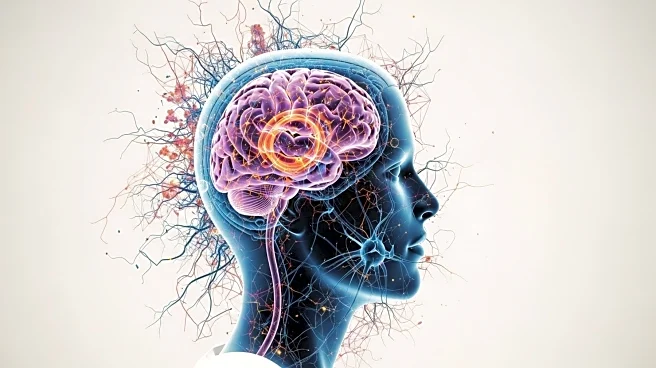What is the story about?
What's Happening?
A new study published in Molecular Biology and Evolution suggests that the high prevalence of autism in humans may be linked to the rapid evolution of certain brain cell types unique to humans. Researchers found that outer-layer neurons in the human brain evolved much faster than those in other apes, with significant changes in autism-associated genes. These genetic shifts, favored by natural selection, may have contributed to slower postnatal brain development and enhanced language capacity in humans. The study indicates that traits driving human cognitive uniqueness also increased neurodiversity, potentially explaining the higher rates of autism.
Why It's Important?
The findings offer a new perspective on the evolutionary factors contributing to autism, suggesting that the genetic changes that make the human brain unique also increase neurodiversity. This research could lead to a better understanding of the genetic basis of autism and inform the development of targeted therapies. By exploring the evolutionary aspects of brain development, scientists can gain insights into the cognitive traits that distinguish humans from other primates, potentially advancing research in neurodevelopmental disorders.
What's Next?
Further research is needed to explore the specific genetic changes that contributed to the rapid evolution of human brain cells and their link to autism. Scientists may investigate how these genetic shifts affect brain development and cognitive functions, aiming to identify potential therapeutic targets for autism. The study's findings could also inspire new approaches to studying the evolution of human cognition and its impact on neurodiversity.
Beyond the Headlines
The study raises questions about the evolutionary trade-offs associated with human cognitive development, suggesting that the genetic changes enhancing language and cognitive abilities may also increase susceptibility to neurodevelopmental disorders. This highlights the complex interplay between evolution and neurodiversity, offering a deeper understanding of the genetic factors shaping human cognition.
















